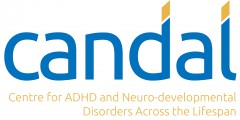Harnessing technology in youth mental health
May 27, 2015
With the advent of technology, mobile phone applications (apps) have become an essential part of the everyday lives of most young people and offer exciting opportunities to support their mental health needs. A recent scoping review exploring the use of technology to deliver mental health services found that not only were they enthusiastically supported by …
Tourette’s Syndrome and the likelihood of experiencing other psychiatric disorders
March 16, 2015
Young people with Tourette’s Syndrome (TS) their parents and clinicians are all aware of how often TS is accompanied by other disorders such as Attention Deficit Hyperactivity Disorder (ADHD) and Obsessive-Compulsive Disorder (OCD). Until recently evidence to support this idea has come mainly from small studies and anecdotal evidence. A recently published study (February 2015: …
Greater clarity about the evidence for non-pharmacological interventions for ADHD
March 2, 2015
For several years some CANDAL members have been working with the European ADHD Guidelines Group on a series of meta-analysis exploring the evidence base for non-pharmacological interventions for ADHD. The first review Songua-barke et al (2013) published in the American Journal of Psychiatry showed a very clear pattern of results across three psychological interventions ( …
‘Happiness’ lessons to be introduced in schools
February 23, 2015
UK government advisors and policy makers called for a new priority emphasis on young people’s mental wellbeing, in their report on Mental Health and Wellbeing in Children presented at the World Innovation Summit for Health last week (17th February, 2015). 1 in 10 British children and adolescents are suffering from mental health problems, such as anxiety …
Welcome to CANDALight, the new blog for CANDAL
January 22, 2015
CANDAL aims to promote collaboration between researchers and our clinical partners into better ways of helping people with neurodevelopmental disorders. These disorders are conditions such as Attention Deficit Hyperactivity Disorder (ADHD), Tourette’s Syndrome, and autism (including Asperger’s Syndrome), all of which may continue into adulthood, and quite often overlap in the same person. Unlike other …






Recent Comments